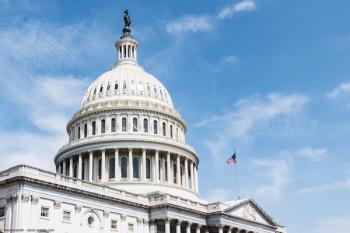
What health care issues should presidential candidates address?
"I would love to hear candidates talk about the astronomically ridiculous prices hospitals charge for surgeries, even outpatient surgeries," one urologist says.
Urology Times reached out to three urologists (selected randomly) and asked them each the following question: What health care issues should presidential candidates address?
"I would love to hear candidates talk about the astronomically ridiculous prices hospitals charge for surgeries, even outpatient surgeries. No governing body controls them. They just seem to be phantom charges to scare patients to death.
Patients bring in bills-$60,000 for an outpatient kidney stone case-it just doesn’t make sense.
Insurance doesn’t pay that, and if patients can’t afford insurance, they sure won’t have the money to pay that. I don’t know why all these phantom charges are there. They seem to be even more out of control lately.
Another issue nobody discusses is the ‘certificate of need’ [CON]. In some states, physicians can get together and open an ambulatory surgical center, or buy a CT or MRI-without applying for a CON. But North Carolina is a CON state.
Also see:
It’s not right that only some states have these laws. It’s not an equal playing field. Actually, the state regulatory agency that controls CON laws is always staffed by hospital administrators; they’re never going to vote for competition. If CON laws were banned on a federal level to create a free market situation, it could help lower costs by increasing competition-like gasoline stations: When one lowers the price, competing stations have to lower theirs to compete. Patients could look around and compare prices at ambulatory surgical care centers and hospitals. Typically, out-of-hospital care costs a lot less.
I’d also like to see them talk about access to care for everybody. They’ve been talking about that but I don’t see how they’re going to solve that problem either.”
John Kirkland, Jr., MD / Charlotte, NC
Next:
Read:
I’d like to see other ideas because then I would know who’s really looking at the issues contributing to health care costs, not just being briefed by staffers or lobbyists.
I’d like to hear their ideas on liability reforms. They can talk about Medicare-for-All, but what about national liability reforms across the board?
If they don’t bring up those issues, like controlling prescription drug prices, they don’t have a clue. Medicare-for-All is their typical response because ‘administrative costs would be so much lower and we’d get rid of the insurance companies.’ I don’t want to hear that same old stale answer. I want to see who’s thinking.
If they took Medicare-for-All off the table, that would tell me how much they understand about what physicians actually deal with in running a practice and what drives health care costs.
All of our costs are driven up because of regulations, medicines, over-documentation, and things like EMR. It’s all gone over the top. How would candidates streamline things? Make liability reform cheaper? Make costs go down?
Also see:
Are there any independent thinkers out there?”
Ernest Bove, MD / Rutland, VT
Next:
“They must talk about controlling costs of prescription drugs and insurance prices, of course.
The debate also has to be undertaken about coverage for all-again, especially since the current administration is trying to decrease what was already given. That’s difficult to do.
But 18% of our GDP is really an unsustainable number-the cost of medicine keeps going up and services restricted. Somehow, there has to be the right of all people to access medical care. Everybody needs to have access to good health care that’s covered at some level, somehow. Whether it’s single-payer or not, it has to be discussed, and ultimately my opinion is that single-payer health care is going to happen. It’s just a matter of how and when.
Read:
I certainly hope some valid ideas come from both sides of the aisle; otherwise, what are we doing? We’re talking about almost 20% of this country’s GDP being spent on medicine. We better get some valid ideas going forward; otherwise, we’re going to bankrupt the system. That’s not good for anybody.
The health care that’s generally delivered in the United States is unbelievably fantastic and the opportunities we have are great. But the way it’s done is causing a lot of problems for the country, especially financially.
Many people still don’t feel like they are protected and that’s unfortunate. Something like four out of 10 families, if they got a $400 emergency medical bill, could not sustain it. I think it’s overdue that this really comes to the forefront and takes center stage, and I think candidates will make this center stage because they have to.”
Daniel Katz, MD / Poughkeepsie, NY
Newsletter
Stay current with the latest urology news and practice-changing insights — sign up now for the essential updates every urologist needs.






